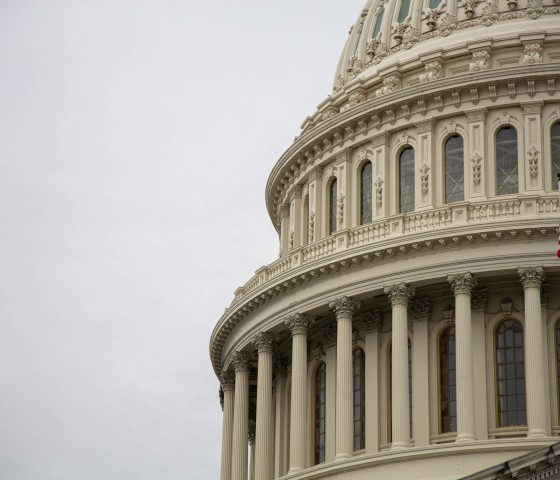COGR submitted a response to OSTP’s request for information (RFI) on “Accelerating the American Scientific Enterprise,” reaffirming its support for OSTP’s goal of...
Intellectual Property & Innovation
Covering policies and practices for federally sponsored research, Intellectual Property and Innovation ensures discoveries and creative works are effectively protected, managed, and commercialized.

Featured
Research Security Regulations: Practical Considerations for Technology Transfer Professionals
This document provides comprehensive guidance for technology transfer professionals on navigating the complex and evolving landscape of U.S. research security...
Technology Transfer in U.S. Research Universities: Dispelling Common Myths (Updated August 2022)
This document, published by COGR, systematically addresses and dispels common misconceptions about technology transfer activities within U.S. research universities...
Resources
All Intellectual Property & Innovation Articles
COGR February 2025 Update
The February 2025 COGR Update provides a detailed account of significant regulatory, policy, and administrative changes impacting U.S. research institutions, driven largely by executive orders from the Administration that restrict DEI programs, roll back regulations, and alter research funding and compliance practices. It highlights widespread operational disruptions, legal challenges over reduced
COGR Responds to USDOJ’s Notice of Proposed Rulemaking—Provisions Pertaining to Preventing Access to U.S. Sensitive Personal Data and Government-Related Data by Countries of Concern or Covered Persons
COGR, representing over 220 U.S. research institutions, submitted comments on the Department of Justice’s proposed rule aimed at restricting access to U.S. sensitive personal and government-related data by countries of concern. COGR expresses concern that the rule’s lack of exemptions for non-federally funded, non-clinical research would severely hinder essential international public health and fo
COGR Submits Comments to NIH on Intramural Research Program Policy: Promoting Equity Through Access Planning
COGR responds to the NIH’s draft policy requiring licensees of NIH technologies to submit access plans aimed at promoting patient access, expressing support for the aim of equity but cautioning that such requirements may unintentionally complicate technology commercialization and deter potential licensees due to increased risks and uncertainties. COGR recommends that NIH focus on adjusting its own
Great Minds: Brainstorming & Benchmarking with COGR Member Institutions: June 2024
The document outlines the agenda and discussion themes for the "Great Minds: Brainstorming & Benchmarking" session held COGR on June 6, 2024. Moderated by key COGR directors and committee chairs from prominent research institutions, the session provides a collaborative platform for member institutions to discuss compliance, policy implementation, and operational challenges related to research
COGR & AAU Submit Joint Comments in Response to Unlocking the Full Potential of Intellectual Property by Translating More Innovation to the Marketplace (Docket No. PTO-C-2024-004)
COGR and AAU, representing leading U.S. research universities, submitted comments to USPTO Director Kathi Vidal expressing agreement with AUTM’s positions and addressing key issues impacting university technology transfer and innovation commercialization. They voiced serious concerns about NIST's draft march-in rights framework, warning that its adoption could deter investment and harm patent lice
Federal March In Provisions & NIST Draft Framework: February 2024 Meeting
COGR's virtual meeting held from February 27 to March 1, 2024, featured expert discussions on federal policies affecting university technology transfer, focusing particularly on the National Institute of Standards and Technology (NIST) draft framework regarding march-in rights under the Bayh-Dole Act. The draft framework proposes using the pricing of commercial goods and services as a criterion fo
Biden EO on AI: Agencies Perspectives: February 2024 Meeting
The COGR virtual meeting held on February 27–March 1, 2024 focused on the Biden Administration’s Executive Order 14110 regarding artificial intelligence (AI), examining how federal agencies such as NIST and HHS are responding to its directives, and what challenges and opportunities lie ahead. The presentations outlined ongoing federal efforts to promote trustworthy, safe, and ethical AI developmen
Higher Education Associations Comments to NIST
A coalition of leading academic associations, including AAU, APLU, AAMC, ACE, AUTM, and COGR, submitted comments opposing the National Institute of Standards and Technology's (NIST) Draft Interagency Guidance Framework for Considering the Exercise of March-In Rights under the Bayh-Dole Act. They argue that the proposed framework introduces unnecessary ambiguity, focuses inappropriately on “reasona
COGR Submits Comments to NIST on Draft Interagency Guidance Framework for Considering the Exercise of March In Rights
COGR, representing over 200 U.S. research institutions, submitted comments urging the withdrawal of the proposed Interagency Guidance Framework for Considering the Exercise of March-In Rights under the Bayh-Dole Act. COGR argues that the Framework, particularly its consideration of product pricing as a trigger for march-in, would undermine successful technology transfer practices, deter industry p
COGR Joins a Multi-Association Extension Request to NIST for the RFI Regarding the Draft Interagency Guidance Framework for Considering the Exercise of March-In Rights (Docket No.: 230831-0207)
The letter, sent by major associations representing research universities and medical colleges, requests a 90-day extension to the public comment period on the National Institute of Standards and Technology's draft interagency guidance framework regarding the exercise of march-in rights under the Bayh-Dole Act. The organizations express concern that the proposed changes significantly depart from l



